A Home for the Holidays Checklist
This holiday season, we want to encourage you to keep these signs your elderly loved one might need more care in mind as you visit your family. We all know that most older adults are reluctant to ask for extra help, even if they know they need it.
While enjoying time with your parents, or loved ones, during the holidays, now is a great time to get a gauge on how their needs are changing. Let’s be honest, our parents can be pretty good at hiding their ailments and sometimes it just isn’t obvious until we see them in person with more of a watchful eye.
If you notice something that seems “off,” it may be a red flag that they need more help.
Here is a list of some helpful signs to access your aging parents’ health, safety, and well-being while you’re home for the holidays. Feel free to click the link to scroll to a certain item.
- Are they taking all their medication?
- Do they appear to be in good health?
- What’s the state of their hygiene?
- Is it ordinary forgetfulness or something more?
- Are there behavioral changes?
- Notice any home safety hazards?
- Are they having difficulty with normal tasks?
- Assess How They Are Getting Around
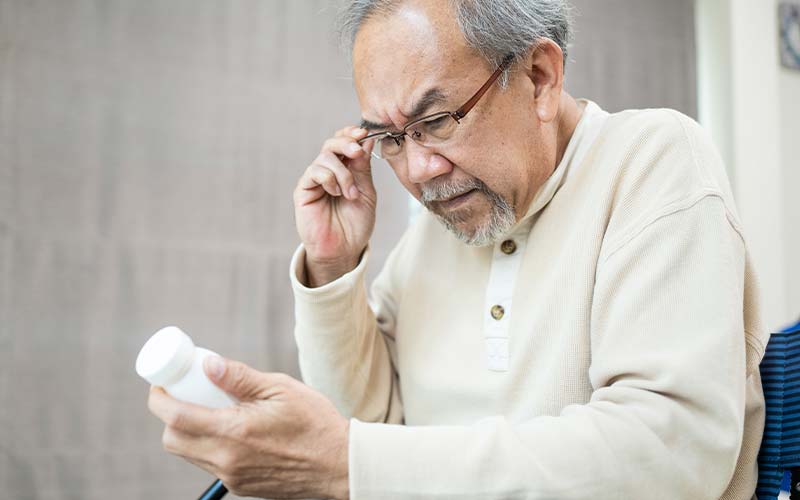
1. Are they taking all their medications?
Something may be wrong if your loved one hasn’t been taking all their medicine recently. Many older individuals misinterpret or abuse medicines, so it’s a good idea to double-check they are taking medications on schedule and as directed by their doctor.
Honestly, this can go both ways. You’ll want to look out for expired medications in the cabinet or if there is less in the bottle than there should be. With a little covert investigation, you’ll clue yourself if this might be a concern.
Also take notice if they are not filling their medications. The label on their medication will give you the clues you need. It will tell you the date the prescription was filled, how often the medication should be taken and how many pills are left in the bottle. If there are significantly more pills left than should be, this is something you’ll want to have a conversation about.

2. Do they appear to be in good health?
Have you noticed Mom moves more slowly, she’s unsteady, has trouble with balance or judging distances? Is she tripping, or spilling items more frequently? Have you noticed any new, or uncharacteristic, bruises on their body, face, or arms? Does she seem more frail or has she lost a considerable amount of weight?
Changes to the appearance of our loved ones may be due to new physical limitations, or symptomatic of new health conditions.
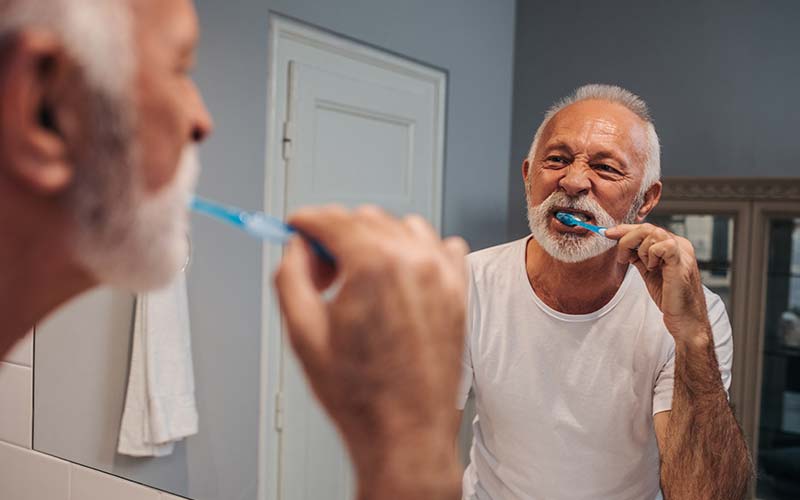
3. What’s the state of their hygiene?
Changes in hygiene are a big indicator that something else is going on. There are a number of changes to grooming standards to be on the lookout for. If you notice their clothing is soiled or their hair is unkept, or if they wear the same clothing day after day without running them through the wash, that’s a big indicator. Another indicator might be odors out of the ordinary on their person or inside the home.
Personal hygiene challenges are another prevalent symptom of increasing health problems. It might be due to a physical inability to wash, or unintentional neglect.
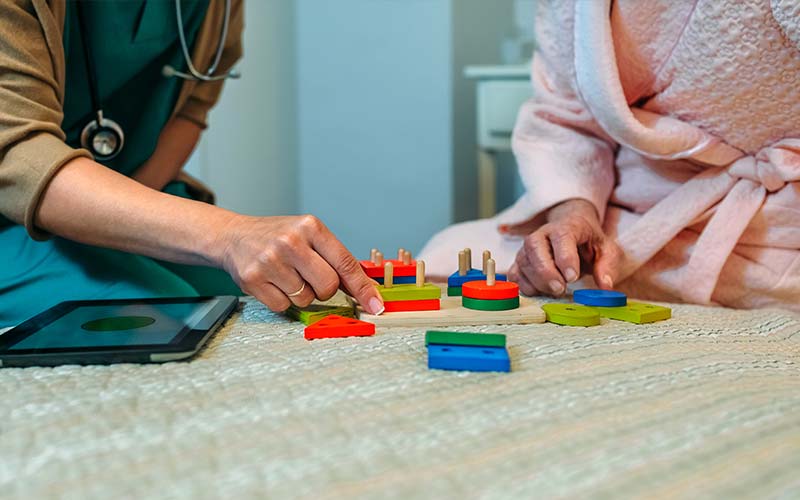
4. Is it ordinary forgetfulness or something more?
Have you noticed Mom loses her train of thought more easily or is repeating questions, ideas or stories multiple times and in a short period of time? Maybe she’s become easily confused, has difficulty following a simple storyline or has become suspicious or fearful? Is Dad getting lost in familiar areas?
A big one to watch out for is if they’re forgetting to turn off the stove. Another one is leaving windows and doors unlocked. Or are they forgetting social events or the names of familiar people?
Forgetfulness is one of the most common warning signs of a loved one’s cognitive health.
This doesn’t mean Mom or Dad has dementia or Alzheimer’s. As we get older, we get a bit more forgetful. Some of that is just normal aging or caused by medications.
Be on the lookout for more frequent indicators of forgetfulness rather than the occasional lapse. If they are continually forgetful and have trouble remembering things, it might signify something more serious.
Especially if the forgetfulness leads to a threat to their health or someone else’s.

5. Are they showing behavioral changes?
Any changes in mood or energy levels can signify other health conditions. It could be the medication. But it might be something more.
If Dad’s not seeing his friends like he used to, or if Mom’s losing interest in her hobbies, take special note of that as well.
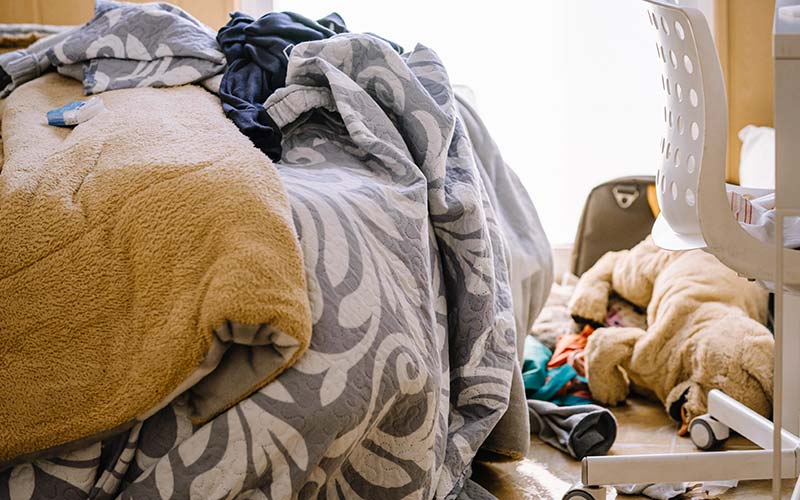
6. Evaluate Any Home Safety Hazards
The surroundings in Mom’s home are also a big thing to look out for, especially if she’s having trouble getting around like she used to.
Things like clutter, small household objects and furniture, cords and wires, and floor carpets can all become tripping and fall hazards. If they’re not able to maneuver like they used to, look out for these things.
Extra clutter for our seniors can spell danger and identifying these risks can help prevent serious injury or worse.
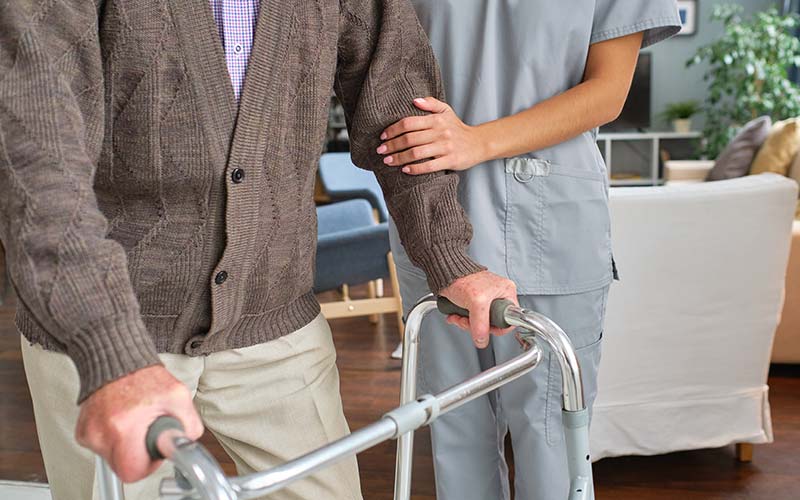
7. Are they having difficulty with familiar tasks or keeping up with the home?
You’ll want to look out for things like the home being less clean than normal. This is another important indicator. The neglect isn’t intentional. It’s just a sign they’re getting older and slowing down. Keep in mind, though, it might be more drastic than that.
Look out for mold and mildew, insects and other signs the home is being neglected. Expired food and leftovers in the fridge, an abnormal amount of accumulated clutter are also things to watch for.
They may start to neglect other tasks as well, such as paying bills, doing the laundry and other household chores. If this is the case, you’ll notice overflowing laundry hampers and piled dishes in the kitchen. If it doesn’t look like a vacuum has touched the carpet in a good long while, it might be time to assess where Mom and Dad are right now. They might just need a little assistance, or they might need much more.

8. Assess How They Are Getting Around
How many times have you heard about someone’s grandpa driving when maybe he shouldn’t? If this is one of your parents, or grandparents, you’ll start to notice things like new dents or scratches on the car. You’ll hear about minor accidents, like backing into a pole.
If they’re avoiding doctor appointments, or they’re not getting to the store like they used to, or they’re just not going anywhere, they might need help with mobility and transportation.
If Mom or Dad are having a hard time driving safely, it might be time to have that hard conversation about how they’re going to get where they need to go.
The last thing anyone wants is for a parent to be a danger to themselves or someone else, especially on the road. They likely won’t notice this is an issue. But if you do, you need to address it.
“Seeing my mom in person, made me realize that she does need extra assistance. Now what?”
Start Discussion About The Future
Here’s the thing. Enjoy the holidays with your family. If you have aging parents, look at this as an opportunity to identify if there are any challenges or concerns. You’re going to notice them eventually; the question is when.
The hard truth is they might be in great health today, but tomorrow, or next holiday season, might be a completely different story. And the sooner you start looking out for it, the easier it will be for you to accept and take action.
Loving our parents sometimes means having that difficult conversation. Nobody wants to tell Mom she needs to wash her hair more, or Dad that he really shouldn’t be driving. None of us want to see our parents, the ones we used to look up to, decline in health, mobility or whatever the case is.
But the earlier you identify potential issues, and the sooner you have these conversations, the easier it will be to get them the care they need, no matter how minimal it may be. The longer we wait, the more we keep them from living a much more fulfilling life.
It might be a senior living community. Or it might just be a little extra care. It is never really too early to do an assessment to see how they’re doing.
Holidays might look a little different in the future. But you’ll all enjoy them much more when Mom has the help and care she needs. Our team at AdoreMOM can help you early in the process, assist you in identifying opportunities for care and providing solutions – even if you’re just trying to get an understanding for the future.

